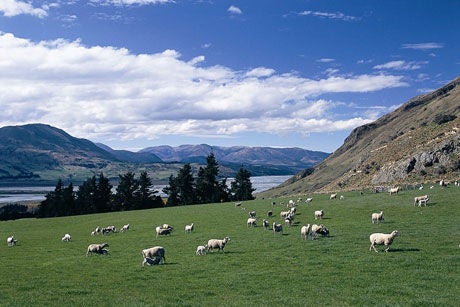Rural Insight: New Zealand remains popular stop for foreign land investment
Bayleys country manager Simon Anderson said his company continues to receive weekly enquiry from overseas investors intent on making land purchases that enable them to participate in New Zealand’s primary sector.
“We are seeing buyers exhibiting more interest in a wider range of property types. This is extending beyond the more traditional pastoral portfolio investments – they are recognising the very positive space horticulture and viticulture are in at present, and the positive prospects both hold.”
The wine and kiwifruit industry are racing each other neck and neck to top $2 billion a year in export earnings, with wine targeting $2 billion by 2020, and kiwifruit $3 billion by 2025. The entire horticultural sector is aiming to grow from its present $3.9 billion in export earnings now to $10 billion by 2020.

Anderson said foreign ownership has been an emotive subject that was first raised after the sale of the Crafar farm portfolio to Chinese investors Shanghai Pengxin. “But with some time behind us now, I think we can see the benefits that purchase has delivered”
“Today the news is all good, including Shanghai Pengxin being supreme winners of in the New Zealand-China Business award.”
The new owners turned around the farms, lifted the farms’ environmental performance, and have undertaken to educate farm workers through an onsite education facility.
Head of Bayleys Research Ian Little said it was important to define overseas sales between “gross” and “net” sales.
“Gross hectare sales represents the total land area proposed to be acquired under consents granted by the Overseas Investment Office (OIO) during the relevant period. The figure will not show the seller’s New Zealand ownership share, if there is any. This will be reflected in the “net” hectare sales that include land that is proposed to be acquired by New Zealand interests as well as overseas, through businesses like joint ventures.
“For example 100ha sold to an overseas business with 50% New Zealand ownership, then only 50ha would register as nett foreign land sales.”
Little said OIO data indicated the net sales of New Zealand land to overseas entities was 32,200ha in 2015, well down on the 65,900ha in 2013.
Overseas investment specialist and lawyer Catherine Reid said the spread and nationality of foreign owners was sometimes lost in the emotion of foreign farm ownership debates.

“While Chinese buyers have had a lot of profile, they remain a proportionately small number of buyers. The largest buyers are from European Union countries, accounting for about 30% of sales.”
She points to Southern Pastures Limited Partnership and Aquila from Sweden and Germany as examples.
Working as a barrister with knowledge of the legislative hoops required to jump through to buy land, Reid has first hand experience on the pitfalls and challenges to buying land in New Zealand.
United Kingdom buyers are often interested in lifestyle blocks, while United States and Japanese buyers are keen on vineyards, particularly Sauvignon Blanc blocks.
“Often foreign ownership of land like vineyards can be invaluable for ensuring access to the owner’s home market. It can be difficult for New Zealand to get to export to the US for example, having owners with access to distribution channels can be a valuable short cut to market.”
Thanks to the high profile Crafar land deal expectations on foreign buyers has tightened, with the quality of the investment outcome lifting with it.
“If a Kiwi buys a piece of land, there is no compulsion to do anything different or better with it. But under Overseas Investment Act rules, an overseas owner has to come up with a benefit they can deliver over and above locals, and they are held to that.”
She points to a recent case of a foreign buyer who purchased a sheep and beef unit from Bayleys and was also required to plant a significant amount of Manuka for honey production and build a lodge, both as part of the condition of purchase.
Reid says most foreign buyers willingly accept the OIO rules, but do become frustrated at the time span it takes.
“Often though that can be from poor quality applications, the OIO is currently rejecting 28% of applications for that reason.”
The main reasons for many looking to invest in New Zealand included its political stability, lack of corruption and ease of doing business.